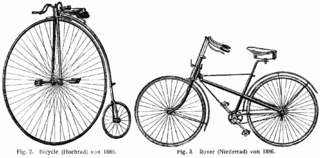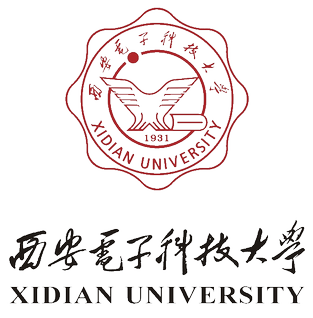Register or registration may refer to:

In business theory, disruptive innovation is innovation that creates a new market and value network or enters at the bottom of an existing market and eventually displaces established market-leading firms, products, and alliances. The term, "disruptive innovation" was popularized by the American academic Clayton Christensen and his collaborators beginning in 1995, but the concept had been previously described in Richard N. Foster's book Innovation: The Attacker's Advantage and in the paper "Strategic responses to technological threats", as well as by Joseph Schumpeter in the book Capitalism, Socialism and Democracy.

Innovation is the practical implementation of ideas that result in the introduction of new goods or services or improvement in offering goods or services. ISO TC 279 in the standard ISO 56000:2020 defines innovation as "a new or changed entity, realizing or redistributing value". Others have different definitions; a common element in the definitions is a focus on newness, improvement, and spread of ideas or technologies.

The Sloan School of Management at Massachusetts Institute of Technology is the business school of the Massachusetts Institute of Technology, a private university in Cambridge, Massachusetts.
An information system (IS) is a formal, sociotechnical, organizational system designed to collect, process, store, and distribute information. From a sociotechnical perspective, information systems comprise four components: task, people, structure, and technology. Information systems can be defined as an integration of components for collection, storage and processing of data, comprising digital products that process data to facilitate decision making and the data being used to provide information and contribute to knowledge.
Technology transfer (TT), also called transfer of technology (TOT), is the process of transferring (disseminating) technology from the person or organization that owns or holds it to another person or organization, in an attempt to transform inventions and scientific outcomes into new products and services that benefit society. Technology transfer is closely related to knowledge transfer.

Xidian University is a public university in Xi'an, Shaanxi, China. It is affiliated with the Ministry of Education, and co-funded by the Ministry of Education, the Ministry of Industry and Information Technology, SASTIND, and China Electronics Technology Group Corporation. The university is part of the Double First-Class Construction and Project 211.
The Open University of Israel is a distance-education university in Israel. It is one of ten public universities in Israel recognized by the Council of Higher Education (CHE). The Open University does not require a matriculation certificate, psychometric exam, or other entrance exam for admission to undergraduate studies.

Sanjay E. Sarma is the CEO, President, and Dean of the Asia School of Business (ASB) in Kuala Lumpur, Malaysia. A recognized innovator in education and technology, Sarma also holds the Fred Fort Flowers (1941) and Daniel Fort Flowers (1941) Professorship in Mechanical Engineering at the Massachusetts Institute of Technology (MIT). As MIT's first Vice President for Open Learning (2012-2021), he spearheaded transformative digital initiatives, including edX, MicroMasters, and OpenCourseWare, which have expanded access to world-class education on a global scale.

Michael S. Tomczyk is best known for his role in guiding the development and launch of the first microcomputer to sell one million units, as Product Manager of the VIC-20 from Commodore. His contributions are described in detail in his 1984 book, THE HOME COMPUTER WARS: An Insider's True Account of Commodore and Jack Tramiel. His role is also documented extensively in numerous interviews and articles. The VIC-20 was the first affordable, full-featured color computer and the first home computer to be sold in KMart and other mass market outlets. Michael joined Commodore in April 1980 as Assistant to the President. He has been called the "marketing father" of the home computer. Michael was also a pioneer in telecomputing, as co-designer of the Commodore VICModem, which he conceived and contracted while at Commodore. The VICModem was the first modem priced under $100 and the first modem to sell one million units.
The URBAN AND REGIONAL INNOVATION Research (URENIO) is a university lab in the Department of Urban and Regional Planning, School of Engineering at the Aristotle University of Thessaloniki. URENIO is a non-profit research organization that started its operation in 1995. URENIO is mainly involved in competitive projects from the European R&D Framework Programs (FP), the Competitiveness and Innovation Program (CIP), the territorial cooperation programs, the OECD, and the United Nations.

The Gubkin Russian State University of Oil and Gas is a public university in Moscow, Russia. The university was founded in 1930 and is named after the geologist Ivan Gubkin. The university is colloquially known as Kerosinka, meaning 'kerosene stove'.

Tom Hardy is an American design strategist, former head of the Corporate IBM Design Program and Professor of Design Management at Savannah College of Art and Design (SCAD). As corporate design advisor to Samsung Electronics (1996-2003) Hardy was instrumental in transforming their brand image from follower to innovation leader by creating a new brand-design ethos: "Balance of Reason & Feeling", and building significant global brand equity through judicious use of design strategy and management. While at IBM (1970-1992), he was an award-winning industrial designer and later served as corporate head of the IBM Design Program responsible for worldwide brand-design identity. His leadership contributed to the revitalization of IBM's brand image via differentiated design such as the iconic ThinkPad.
Korea Aerospace University (KAU) is a prominent university located in Goyang, South Korea, specializing in aviation and aerospace studies. Established in 1952, KAU has grown to become a leading institution in the fields of aerospace engineering, aviation management, and air transportation.KAU offers a range of undergraduate, graduate, and doctoral programs, focusing on areas such as aircraft systems, avionics, space engineering, and airport management. The university is known for its strong industry connections, providing students with practical experience through internships, research opportunities, and partnerships with major aerospace companies.KAU also boasts advanced research facilities, including an aircraft maintenance training center, flight simulators, and a dedicated space research lab. The university plays a crucial role in South Korea's aerospace industry, contributing to the development of cutting-edge technologies and training the next generation of aerospace professionals.In addition to its academic excellence, KAU actively participates in international collaborations, hosting exchange programs with universities and institutions worldwide. This global perspective ensures that KAU remains at the forefront of aerospace education and research, preparing its students for careers in a rapidly evolving industry.

The École Nationale Supérieure de Physique, Électronique et Matériaux is a Grande École located in Grenoble, France. Phelma is part of Grenoble Institute of Technology. The school specializes in physics, electronics and materials.

Reksoft is a Russian multidisciplinary consulting and technology group of companies delivering a full cycle of digital transformation services, from business strategy formation and transformation management to deployment of information systems, custom software development and support, tailored industrial automation projects implementation. Reksoft Group includes the companies Reksoft, Reksoft Consulting, RNT Group, Reksoft.Labs.

Technion International (TI) is the international department of Technion-Israel Institute of Technology, which was ranked as the best university in Israel and the Middle East. Located in Haifa, Israel, Technion International was founded in 2009 in order to oversee Technion’s international academic endeavors. Technion International offers a variety of programs, including "full undergraduate and graduate programs, postdoctoral fellowships, study abroad programs, summer programs for gifted teens, research internships as well as entrepreneurship programs". As of 2018, "Technion has academic collaboration agreements with 232 universities in 41 countries and 36 medical school agreements".
Information technology (IT) is a set of related fields that encompass computer systems, software, programming languages, data and information processing, and storage. IT forms part of information and communications technology (ICT). An information technology system is generally an information system, a communications system, or, more specifically speaking, a computer system — including all hardware, software, and peripheral equipment — operated by a limited group of IT users, and an IT project usually refers to the commissioning and implementation of an IT system. IT systems play a vital role in facilitating efficient data management, enhancing communication networks, and supporting organizational processes across various industries. Successful IT projects require meticulous planning, seamless integration, and ongoing maintenance to ensure optimal functionality and alignment with organizational objectives.
Yossi Dashti (born in 1952) is an Israeli–American author, researcher, and business facilitator, in the field of computer information systems, innovation and entrepreneurship. In his books and publications, he promotes value creation and process improvements, while integrating academic research and practical technology innovation business experience. In his early career, Dr. Dashti was engaged with Information Technology (IT) and software applications and was among the pioneers in the development of Electronic Data Interchange (EDI) and E-Commerce platforms.










